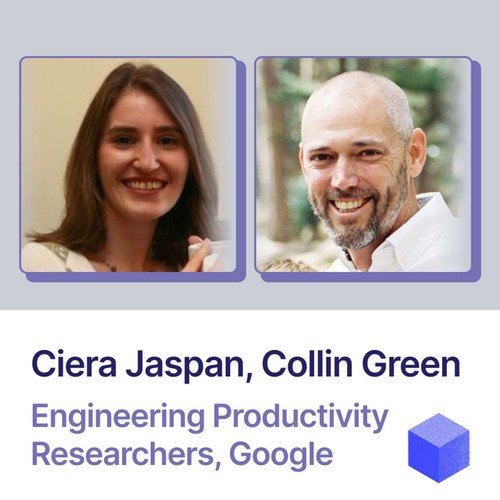
 Engineering Enablement by DX
Engineering Enablement by DX How Google measures developer productivity | Ciera Jaspan, Collin Green (Google)
93 snips
Aug 2, 2023 AI Snips
Chapters
Transcript
Episode notes
Mixed Methods Team
- Google's Engineering Productivity Research team uses mixed methods to understand developer experience and improve tooling.
- They combine software engineers and UX researchers from diverse fields like behavioral economics and psychology.
Triangulating Productivity
- Google measures developer productivity by triangulating across speed, ease, and quality.
- They use logs, surveys, diary studies, and interviews, validating different methods against each other.
Robotic Builds Anecdote
- In one study, Google's logs data incorrectly included robotic builds, skewing developer satisfaction results.
- Removing these builds revealed a more accurate picture of the build latency developers experienced.
